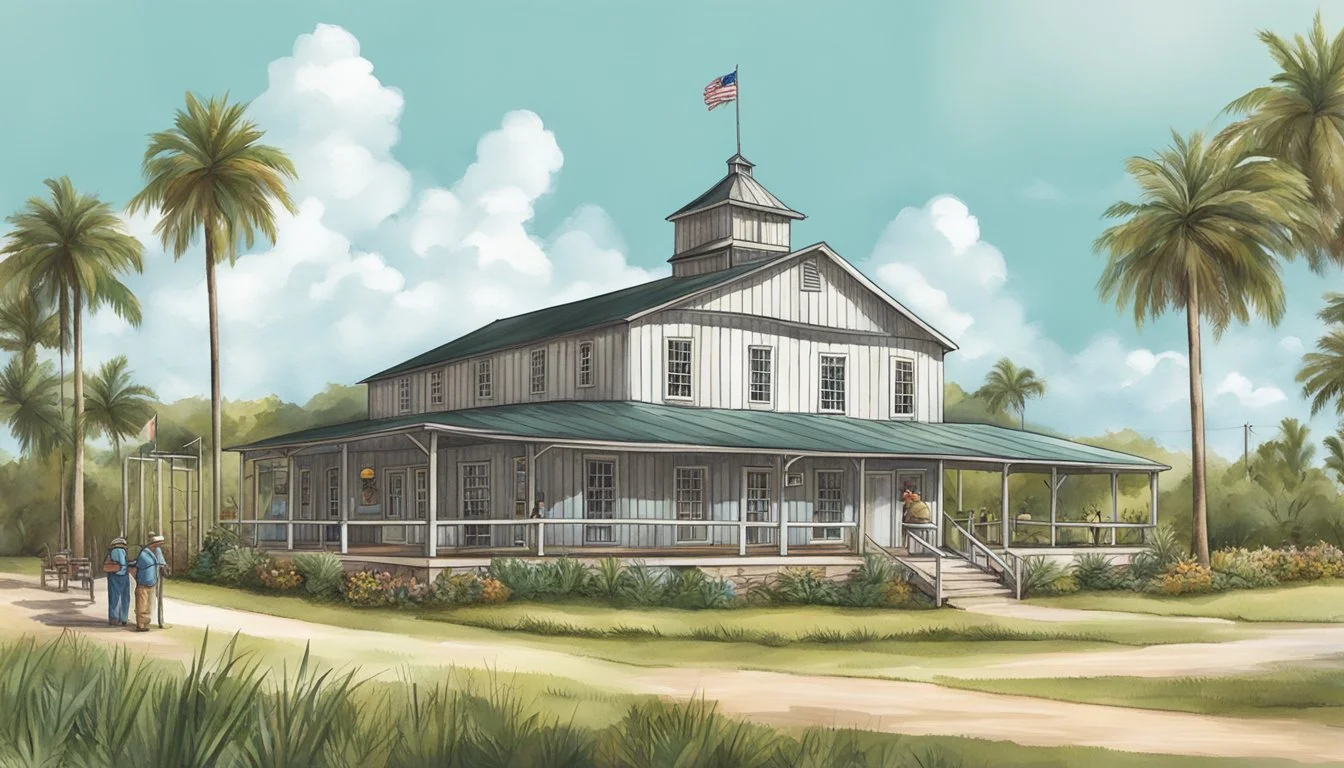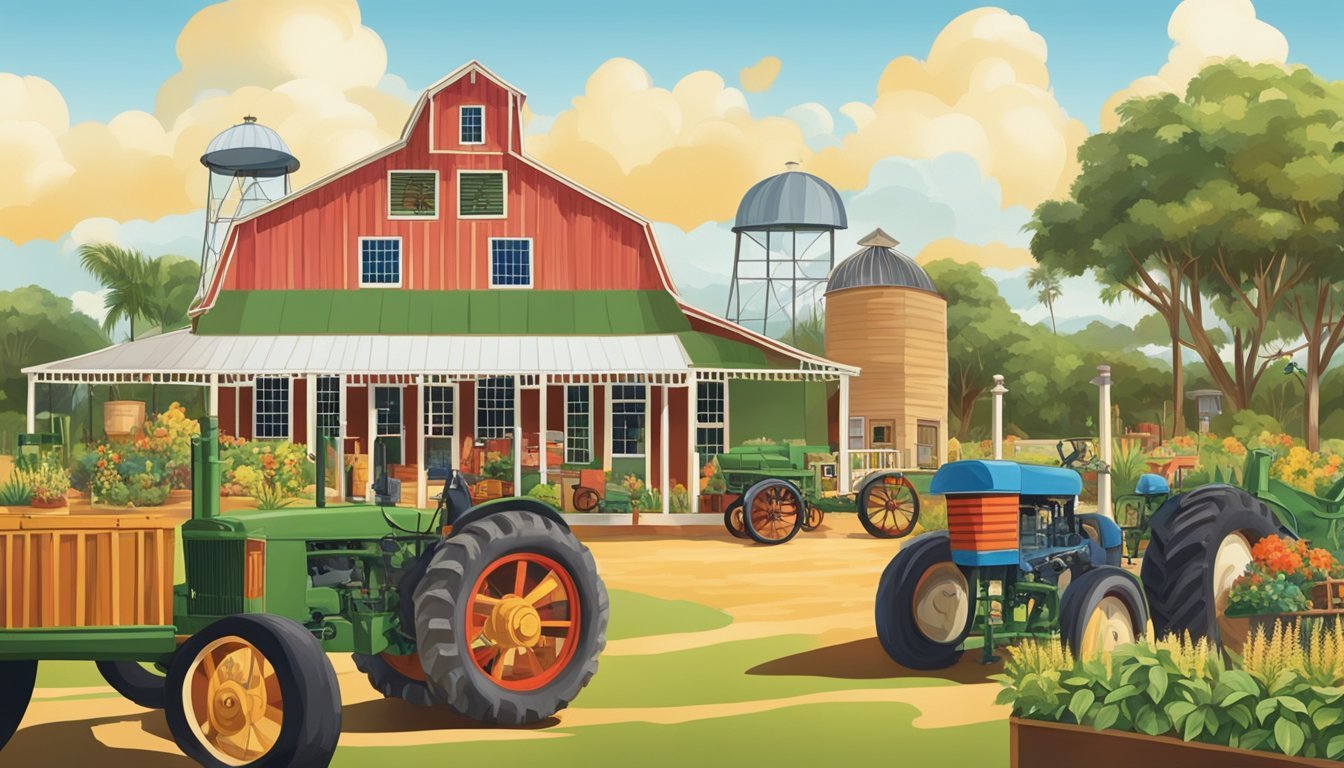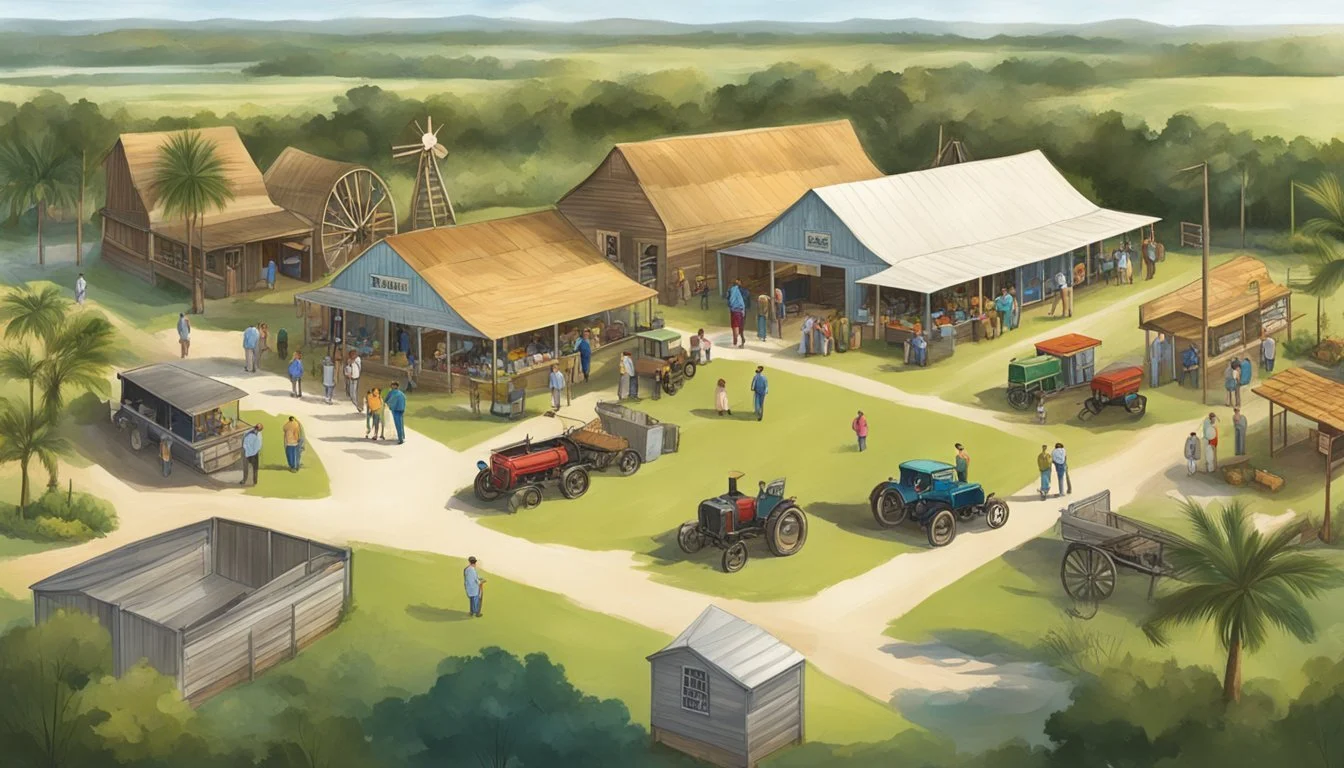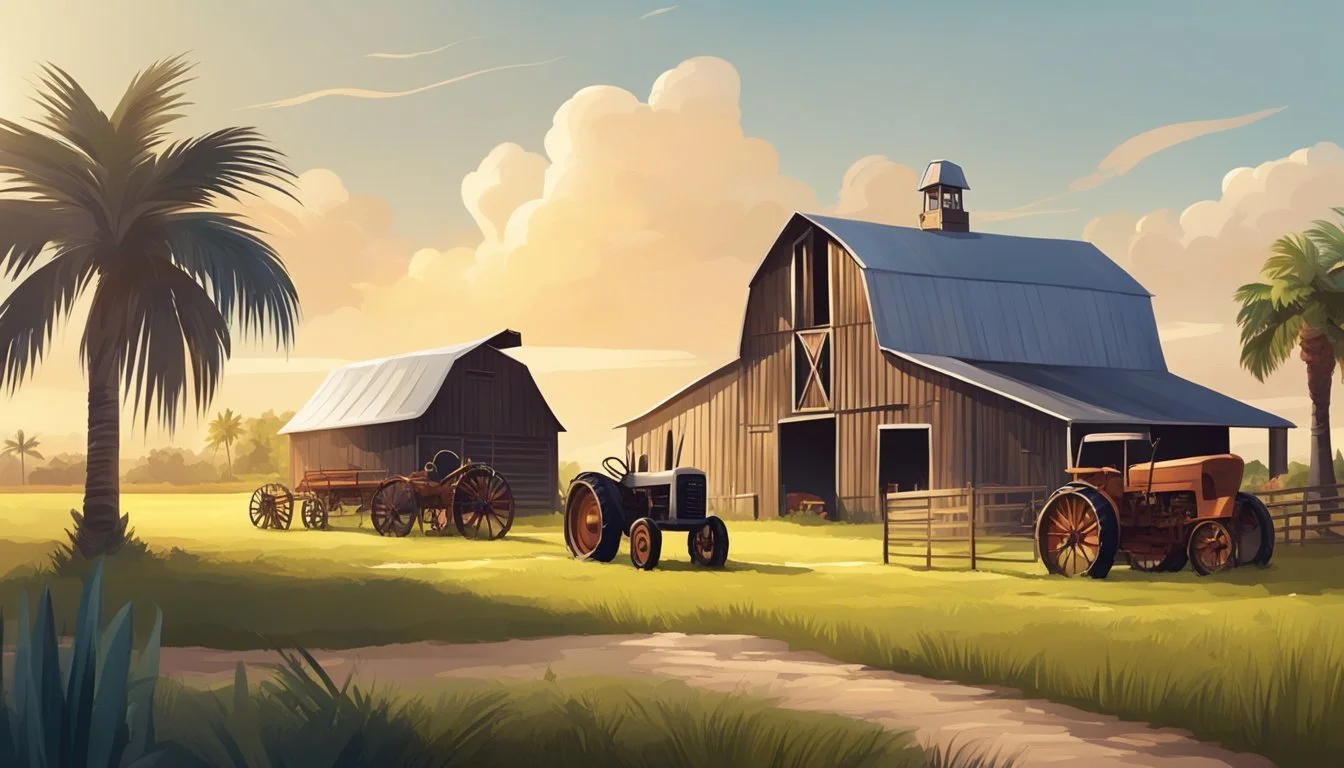Historical Farms and Agricultural Museums in Florida
A Guide to Agricultural Heritage
Florida's rich tapestry of agricultural history is encapsulated within various historical farms and agricultural museums spread across the state. These institutions serve as stewards of a past where agriculture stood as the cornerstone of daily life and economic sustenance. The Florida Agricultural Museum, in particular, plays a pivotal role, offering a window into the agricultural practices of yesteryear, as well as perspective on contemporary and future agricultural issues.
By preserving historical structures and farming implements, the Museum does more than chronicle the legacy of Florida’s agricultural evolution; it ensures that the stories and significance of this vital industry endure. It exemplifies a commitment shared statewide to celebrate and understand the importance of agriculture to the State of Florida, not only in terms of its past but also in shaping its present-day identity.
Visitors to these living-history exhibits and museums are often treated to hands-on experiences, bringing to life the practices that have fed and fueled communities through the centuries. From the early days of the Timucuas to the diverse agricultural operations of modern times, the narrative at these sites is comprehensive and immersive. The Florida Agricultural Museum and its kindred sites provide a vital educational platform for the public, celebrating agriculture's enduring legacy in the Sunshine State.
Florida Agricultural Museum Overview
The Florida Agricultural Museum, situated in Palm Coast, preserves and showcases the agricultural heritage of the state, highlighting the history and significance of farming in Florida.
Importance of Agriculture in Florida
Agriculture has long been a cornerstone of Florida's economy and cultural identity. The state's unique climate allows for a diverse range of crops and livestock. Notably, the Florida Cracker cattle, a breed developed in the state, are emblematic of this agricultural history.
Museum's Role in Preservation
The Museum plays a vital role in the preservation of Florida's agricultural past. It ensures that the heritage of farms and rural life is not forgotten, displaying heritage livestock such as Cracker Cows and educating the public about agriculture's evolution in the region. Through presenting history in an interactive format, the Florida Agricultural Museum connects visitors with the state's agricultural roots in a tangible and memorable way.
Historical Farms in Florida
Historical farms in Florida offer a unique glimpse into the state's agricultural past, where visitors can explore original farmsteads and gain a deeper understanding of rural life that once thrived across the region.
Flagler County Farms
Flagler County is home to the Florida Agricultural Museum, where history is not merely displayed but is brought to life. This museum embodies the essence of historic farm life, with meticulously preserved structures and live demonstrations that transport visitors back in time. It stands as a testament to the area's commitment to preserving and interpreting its agricultural roots.
Palm Coast and St. Augustine Agriculture
The journey through Florida's agricultural past continues in Palm Coast and St. Augustine, where agriculture has been a staple for centuries. Farmsteads in the area illustrate the evolution of farming techniques and the adaptation of farmers to the Floridian landscape and climate. These historical sites not only celebrate but also educate on the agricultural legacy woven into the fabric of these communities.
Educational Programs and Exhibits
Florida's historical farms and agricultural museums offer a rich tapestry of educational programs and exhibits that aim to illuminate the agricultural past and present. These offerings are designed to educate the public through engaging, hands-on experiences.
Living History Demonstrations
Florida Agricultural Museum enlivens the past through their living history demonstrations. Visitors are transported through time as they witness guides and volunteers skillfully re-enacting farming techniques and lifestyle activities from different historical periods. Traditional skills like butter churning and horseback riding are not only demonstrated but often visitors are encouraged to participate, bridging the gap between historical understanding and tangible experience.
Agricultural Education for the Public
The educational thrust of the museum reaches beyond mere observation. They offer tailored programs designed to interpret and explain the significance of agricultural developments over time. The home school experiences and school tours, for instance, allow students to actively engage with Florida's agricultural heritage. Programs are structured to provide a comprehensive understanding of agricultural issues from the past, present, and into the future by incorporating factual narratives and interactive learning environments.
Recreational and Event Offerings
Historical farms and agricultural museums in Florida diversify their appeal with a range of recreational and special event offerings. These settings not only celebrate the state's rich agricultural history, but also invite the public to personally engage through interactive experiences and private events.
Trail Rides and Picnics
The Florida Agricultural Museum provides visitors with an immersive experience into Florida's rural past through guided horseback trail rides across its scenic landscape. Guests can enjoy the tranquility of nature on these educational rides that showcase the musem's commitment to preserving Florida's equine heritage. Additionally, spacious areas designated for picnics create an ideal setting for families looking to spend quality time amidst the backdrop of historical farm buildings and native wildlife.
Weddings and Parties
With picturesque farmsteads and restored buildings, historical farms in Florida offer a unique venue for weddings and parties. The rustic charm of these agricultural sites provides a memorable and authentic atmosphere perfect for celebrating special occasions. They are equipped with ample space for both intimate gatherings and larger celebrations, ensuring that each event can be tailored to fit the personal style and preferences of the hosts.
Living History and Agricultural Conservation
Florida's living history farms and agricultural museums play a vital role in preserving the state's rich agricultural heritage and maintaining historical authenticity. These institutions act as stewards of both genetic conservation and architectural heritage, offering future generations a window into the past.
Heritage Livestock Conservation
Living history farms in Florida undertake the significant task of protecting heritage livestock varieties, with a particular focus on Florida Cracker Horses, a breed with deep historical roots in the state. These equines are descendants of the horses brought by Spanish explorers and are preserved through careful breeding programs. Non-profit organizations work to ensure the genetic diversity and population health of these breeds to maintain their historical significance and agricultural utility.
Historical Building Preservation
The architecture of historical farms offers insight into the way early Floridians lived and worked. Preserving these structures, including the wooden frame homes, farm buildings, and even commercial structures from past centuries, requires a concerted effort. Non-profit groups and museums alike pledge to preserve such buildings, implementing restoration techniques that adhere to the period's construction styles and materials. This commitment ensures that visitors can experience history up close, seeing firsthand how Florida's agricultural communities functioned.
Interactive and Community Engagement
Historical farms and agricultural museums in Florida prioritize interactive learning and foster strong community ties through various programs. From hands-on experiences to member-driven initiatives, these entities offer vibrant opportunities for individuals to connect with agricultural heritage.
Volunteer Opportunities
Volunteers play a critical role at sites like the Florida Agricultural Museum, where individuals can engage with the past in tangible ways. These opportunities often involve assisting with educational programs, maintaining historic landscapes, or participating in the daily operations of the museum. Volunteers not only contribute to the vitality of the museum but also gain a unique perspective on Florida's agricultural evolution.
Key Roles:
Educational Support
Grounds Maintenance
Event Staffing
A consistent stream of enthusiastic community members volunteering their time ensures that the collective memory and knowledge of Florida's agricultural past remain accessible to all visitors.
Member Involvement with ALHFAM
The Association for Living History, Farm and Agricultural Museums (ALHFAM) encourages its members to immerse themselves in the preservation and interpretation of agricultural history. Members can participate in specialized workshops, contribute to publications, and join in network-wide initiatives focused on the progression and professionalization of living history practices.
Member Activities:
Workshops and Seminars
Networking Events
Skill Development Sessions
ALHFAM facilitates a platform where members contribute to the broader narrative of agricultural history while also engaging in professional development within the field. The association leverages the collective expertise of its members to advance the quality and authenticity of living history in agricultural museums.
Natural Habitat and Ecology Conservation
Florida's agricultural history is deeply interwoven with the state's unique ecology, and conservation efforts focus on preserving both its native wildlife and their habitats. These measures not only protect biodiversity but also offer a window into the historical lifestyle tied to the land.
Piney Woods Native Wildlife
The Piney Woods region, a habitat characterized by longleaf pines and a variety of hardwoods, is home to a rich tapestry of wildlife. Efforts are underway to protect species such as the gopher tortoise, which is a keystone species due to its burrowing habits that provide shelter for over 350 other species. In areas like the Florida Agricultural Museum, visitors can learn about the critical role of these habitats and the ongoing work to maintain them for future generations.
Key Species in Piney Woods:
Gopher Tortoises
Florida Cracker Cattle
Deer
Princess Place Preserve Ecosystem
At the Princess Place Preserve, conservation is a priority, with vast areas set aside to safeguard the ecosystems that thrive in this historic property. The preserve's diverse habitats range from marshlands to pine flatwoods, supporting various animals. For instance, it is a sanctuary for Florida cracker cattle, a heritage breed directly linked to the state's agricultural past. By experiencing Florida's natural habitats here, one gains insight into the essential balance between farming practices and environmental stewardship.
Ecosystem Features at Princess Place Preserve:
Diverse habitats (marshlands, pine flatwoods)
Home to heritage livestock and wildlife
Protection efforts for native ecosystems
Additional Attractions and Activities
Visitors to historical farms and agricultural museums in Florida often seek additional experiences beyond the primary exhibits. The adjacent areas abound with cultural richness and educational opportunities that complement the historical narrative of Florida's agricultural past.
Nearby Historical and Cultural Sites
The Florida Agricultural Museum is not only a hub for agricultural history but also acts as a gateway to numerous historical and cultural sites in the vicinity. Just a short drive away is the Old Florida Museum, which offers a deep dive into the region's historical landscape through interactive exhibits and immersive reenactments. Visitors can explore a variety of period-specific sites that paint a vivid picture of life in Florida through the ages.
Educational Field Trips and Projects
Educators find the Florida Agricultural Museum and surrounding sites to be fertile grounds for field trips that provide hands-on learning experiences. Students can engage in projects that span from understanding heritage livestock breeds to agricultural practices. The museum curates tailor-made programs that align with curriculum standards, ensuring that every field trip is not only educational but also relevant and impactful. These programs often culminate in engaging projects that reinforce the historical lessons learned during the visit.
Understanding Agricultural Issues
This section delves into the evolution of agricultural practices in Florida and the modern-day challenges faced by the industry. By examining history and present conditions, readers gain a comprehensive understanding of the sector's dynamic nature.
Historical Perspectives on Agriculture
Agriculture has been a cornerstone of Florida's economic and cultural development. Museums like the Florida Agricultural Museum provide insights into the agricultural past, showcasing historical structures such as the dairy barn and the citrus complex. These historical entities serve as windows into the traditional practices that shaped the early agricultural landscape of the state.
Dairy Barn: An integral part of Florida's agricultural history, offering a glimpse into the dairy farming practices of the past.
Citrus Complex: Illustrates the development of the citrus industry, which has been pivotal to Florida's agricultural identity.
Contemporary Agricultural Challenges
Today, Florida's agriculture faces a spectrum of challenges, from climate change to economic pressures. Museums and living history centers play a vital role in interpreting these issues and fostering public understanding.
Climate Change: Poses significant threats to crop yields, soil health, and the overall sustainability of agricultural practices.
Economic Factors: Include market volatility and the increasing costs of supplies, which can make operating a profitable agricultural enterprise more difficult.
The country store at historical sites often highlights the commercial side of agriculture, reflecting the economic aspects that have been and continue to be, central to the industry's success.










